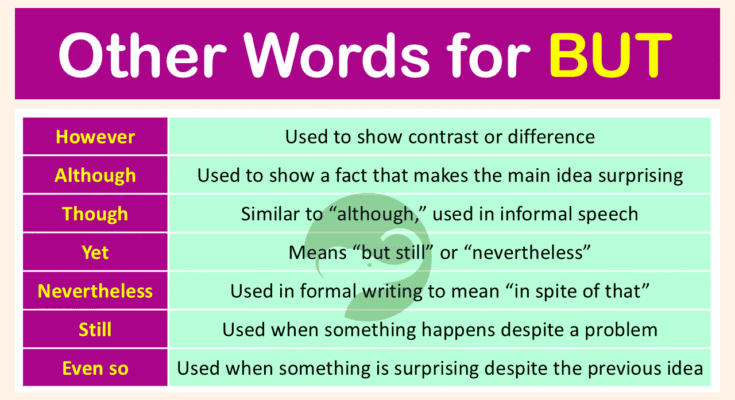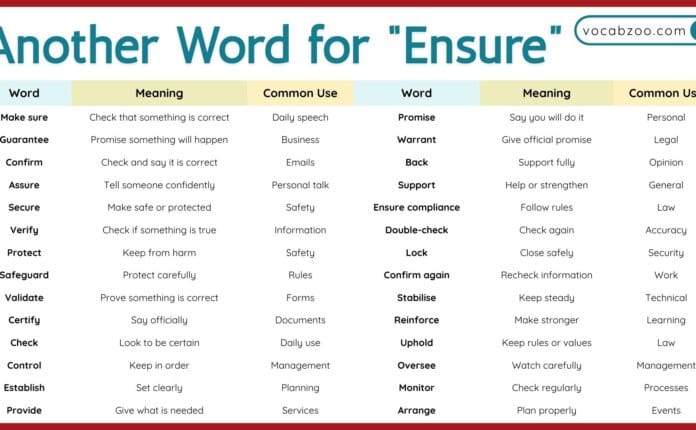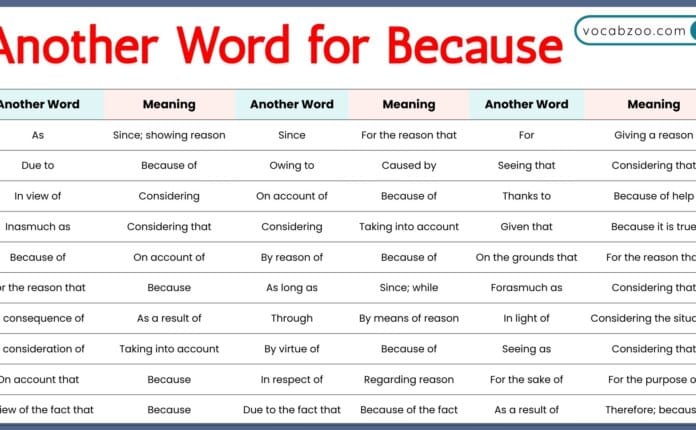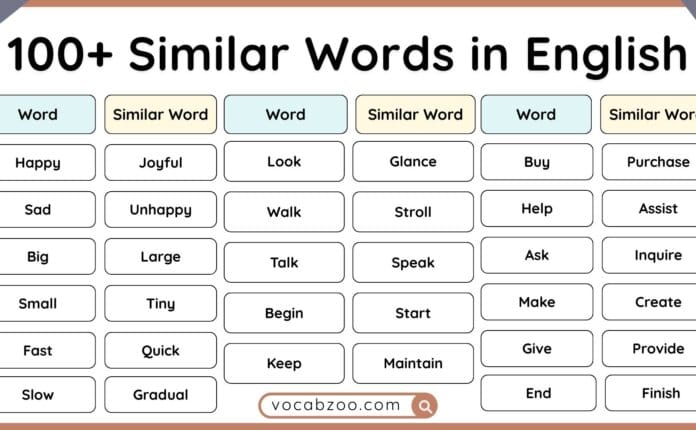Learning Other Words for But in English helps you connect ideas and show contrast more effectively. In this blog post, you will find synonyms of but with their meanings to understand and remember easily. Knowing these words improves your speaking, reading, writing, and listening skills, making your English more fluent and expressive. By the end, you will be able to use Other Words for But naturally in sentences and conversations.
What is “But”?
The word “but” is a conjunction used to join two opposite ideas in a sentence. It shows a contrast between two statements.
Example:
- I wanted to go out, but it started raining.
Here, “but” shows a contrast between wanting to go out and raining.
Related: Synonyms of Happy
Other Words for “But”
Here are some common alternatives to “but” that you can use in both spoken and written English.
| Other Word for “But” | Meaning / Use | Example Sentence |
|---|---|---|
| However | Used to show contrast or difference | I was tired, however, I finished my homework. |
| Although | Used to show a fact that makes the main idea surprising | Although it was late, we kept studying. |
| Though | Similar to “although,” used in informal speech | It was raining, though we still went out. |
| Yet | Means “but still” or “nevertheless” | He is young, yet very wise. |
| Nevertheless | Used in formal writing to mean “in spite of that” | The task was hard, nevertheless, we succeeded. |
| Still | Used when something happens despite a problem | It was cold, still, we enjoyed the picnic. |
| Even so | Used when something is surprising despite the previous idea | She was tired; even so, she helped her friend. |
| On the other hand | Used to show a different opinion | I like coffee; on the other hand, tea is healthier. |
| Except | Means “apart from” or “excluding” | Everyone came except John. |
| While | Shows contrast between two facts | While I agree with you, I have a different view. |
| Whereas | Used to show strong contrast | She loves winter, whereas I prefer summer. |
| Nonetheless | Similar to “nevertheless,” used in formal writing | It was risky, nonetheless, we took the chance. |
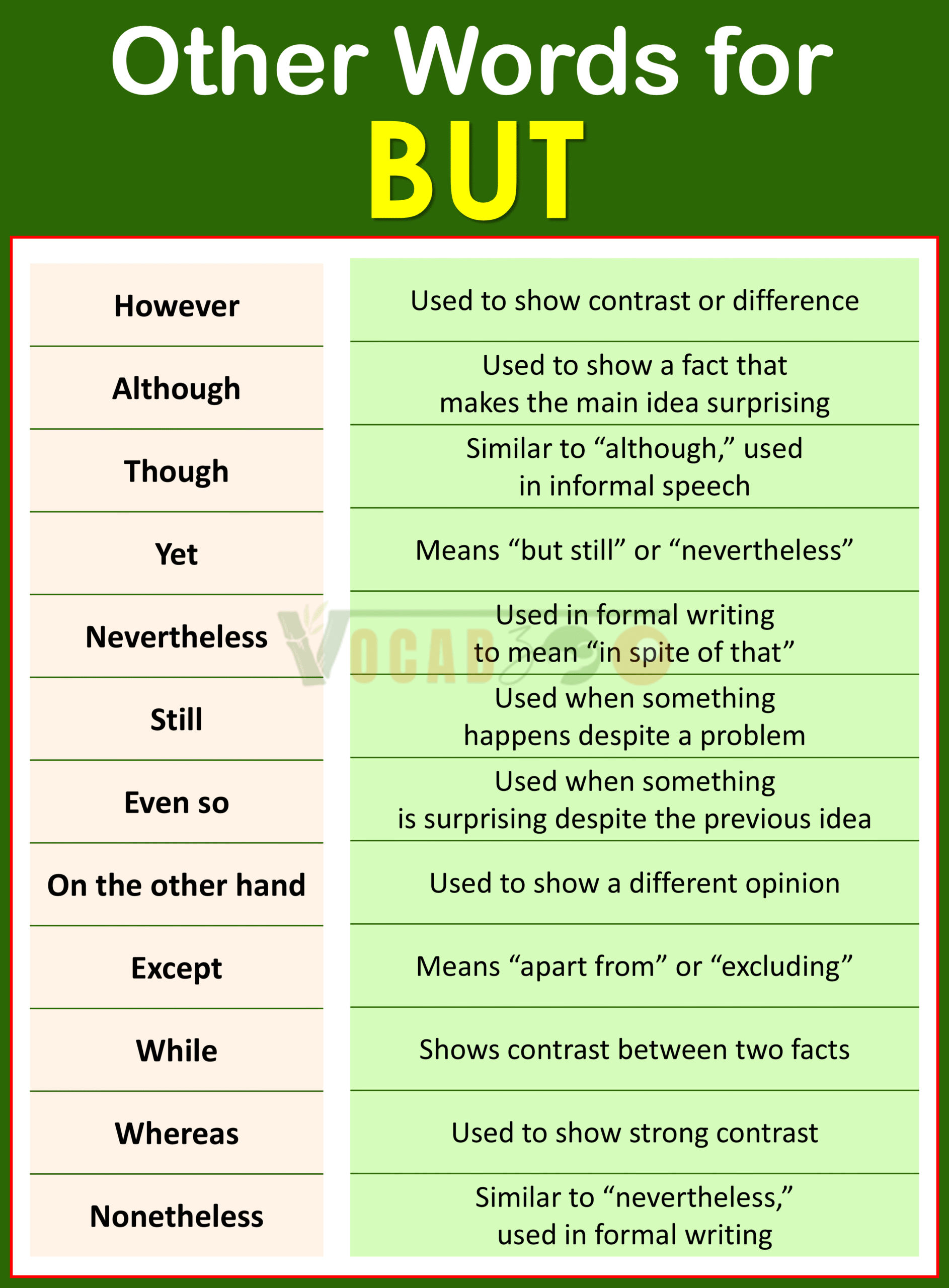
How to Use Other Words for “But” in Sentences
Let’s look at a few examples that show how these alternatives work in different contexts:
- I wanted to join the party, however, I had work to do.
- Although it was raining, they continued playing football.
- He worked hard; yet, he didn’t get the promotion.
- She loves cats; on the other hand, her brother prefers dogs.
- Nevertheless, they decided to keep going.
Different Contexts of “But”
The word “but” can be used in different contexts in English. Let’s see how:
To show contrast
I like swimming, but I hate deep water.
To mean “except”
Everyone was there but Tom.
To add an unexpected idea
He is poor, but happy.
To show surprise or disagreement
But I already told you that!
Simple Tips to Remember
- Use “however” or “nevertheless” in formal writing.
- Use “though” or “yet” in daily conversation.
- Use “whereas” or “while” to compare two ideas.
- Use “except” when you mean apart from someone or something.
Using the same word again and again makes writing boring. Replacing “but” with words like however, though, yet, or nevertheless helps you write in a clear, smart, and natural way. Keep practising these words in sentences to sound more fluent and confident in English!
FAQs about Other Words for But
What is the easiest replacement for “but”?
The word “however” is the most common and easy replacement for “but.”
Can I use “though” at the end of a sentence?
Yes, you can. For example: I didn’t like it much, though.
What is the difference between “although” and “but”?
“Although” is used at the start of a clause, while “but” is used to connect two main ideas.
Is “yet” formal or informal?
“Yet” is neutral and can be used in both formal and informal English.
What can I use instead of “but” in writing?
You can use however, nevertheless, although, yet, or on the other hand.
Read More
